Should Gaming Be a Sport: Debating eSports and Traditional Sports
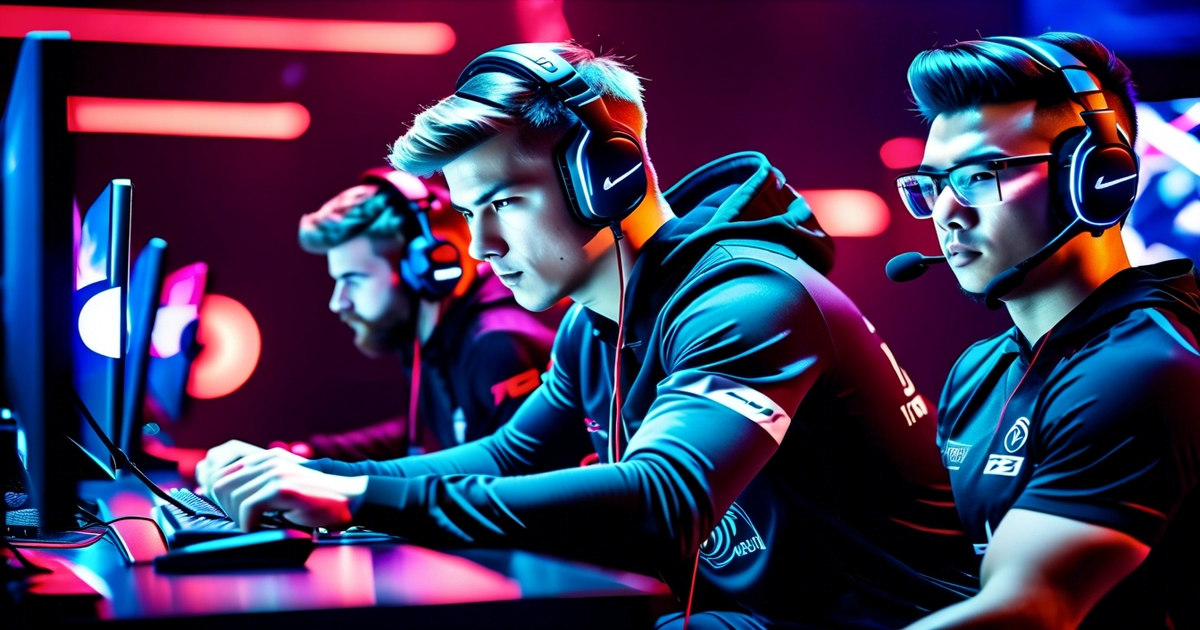
- Key Takeaways
- Defining What Constitutes a Sport
- Arguments Supporting Gaming as a Sport
- Arguments Against Gaming as a Sport
- Physical and Mental Demands of Competitive Gaming
- Teamwork and Communication in eSports
- Global Recognition and Scholarships in eSports
- Comparison Between eSports and Traditional Sports
- The Social Aspect and Fan Engagement in Gaming
- Summary
- Frequently Asked Questions
Did you know that the global esports audience is expected to reach over 474 million in 2021? The debate on whether gaming should be considered a sport has sparked intense discussions.
Many argue that the level of skill, strategy, and dedication required for competitive gaming mirrors traditional sports. Others question if sitting behind a screen can truly equate to physical athleticism.
In this post, we’ll delve into the controversial topic of esports as a sport, examining its growing popularity, defining characteristics of traditional sports versus gaming, and the potential impact on future generations.
Key Takeaways
- Competitive gaming shares many characteristics with traditional sports, including skill, strategy, and teamwork, which supports its classification as a sport.
- The physical and mental demands of competitive gaming, along with the need for teamwork and communication, demonstrate the athletic and strategic elements involved.
- Global recognition and the availability of scholarships in eSports highlight the growing legitimacy and opportunities within the gaming industry.
- Despite the differences between eSports and traditional sports, both offer avenues for social engagement and fan involvement, contributing to their significance in the entertainment landscape.
- To further establish gaming as a sport, it is important to continue advocating for its recognition and understanding its value in terms of skill, strategy, and community engagement.
- Embracing the evolving nature of sports to include competitive gaming can lead to expanded opportunities for athletes and enthusiasts alike.
Defining What Constitutes a Sport
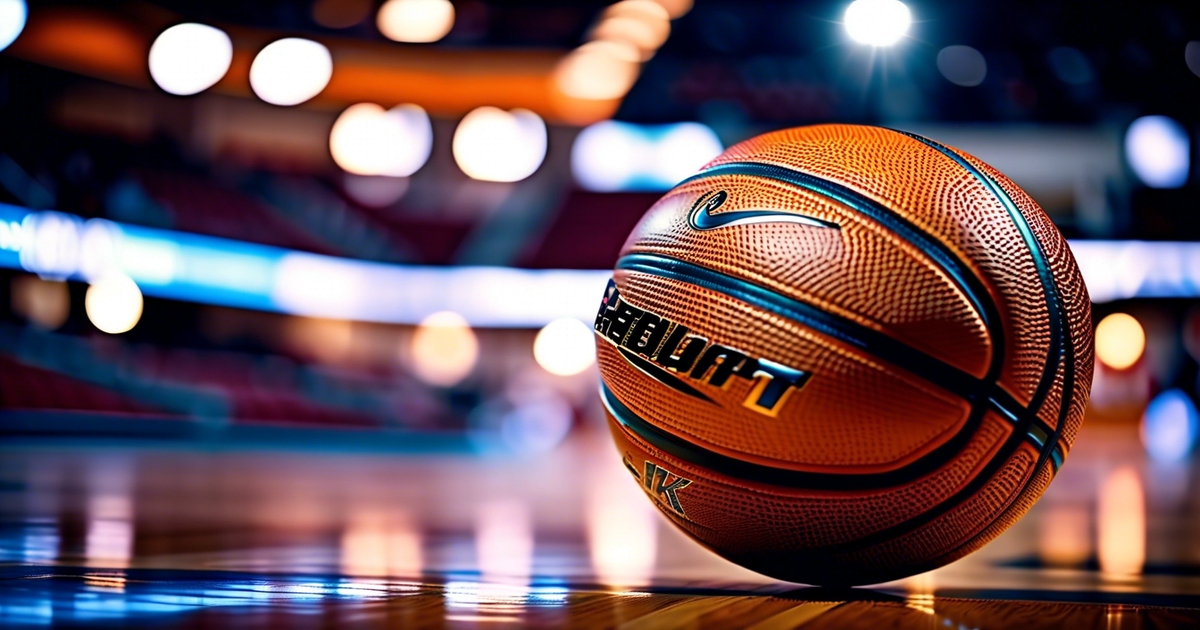
Traditional View
In the traditional view, sports are characterized by physical activity and competition. This includes activities like running, jumping, or throwing objects. These physical elements have long been considered essential components of what defines a sport. For example, football, basketball, and track and field are all classic examples of traditional sports that require physical prowess.
However, this definition has evolved over time to encompass more than just physicality. The modern perspective on sports now recognizes the importance of mental skills and strategy in athletic endeavors.
Modern Perspective
In the modern perspective of sports, mental acuity is valued as much as physical prowess. Games such as chess and poker fall into this category because they require strategic thinking rather than physical exertion. Similarly, e-sports like League of Legends or Dota 2 demand quick decision-making and tactical planning from players.
This shift in perspective acknowledges that athleticism doesn’t solely revolve around muscular strength but also encompasses cognitive abilities like problem-solving and critical thinking.
Evolving Definition
The evolving definition of sports reflects our changing world where technology plays an increasingly significant role in everyday life. As a result, there’s a growing acceptance of activities involving virtual environments as legitimate competitive pursuits.
For instance, video games have gained recognition as professional competitions with substantial prize pools at events like The International for Dota 2 or the League of Legends World Championship. These developments challenge conventional notions about what constitutes a sport by incorporating technology-driven experiences into the realm of competitive activities.
Arguments Supporting Gaming as a Sport
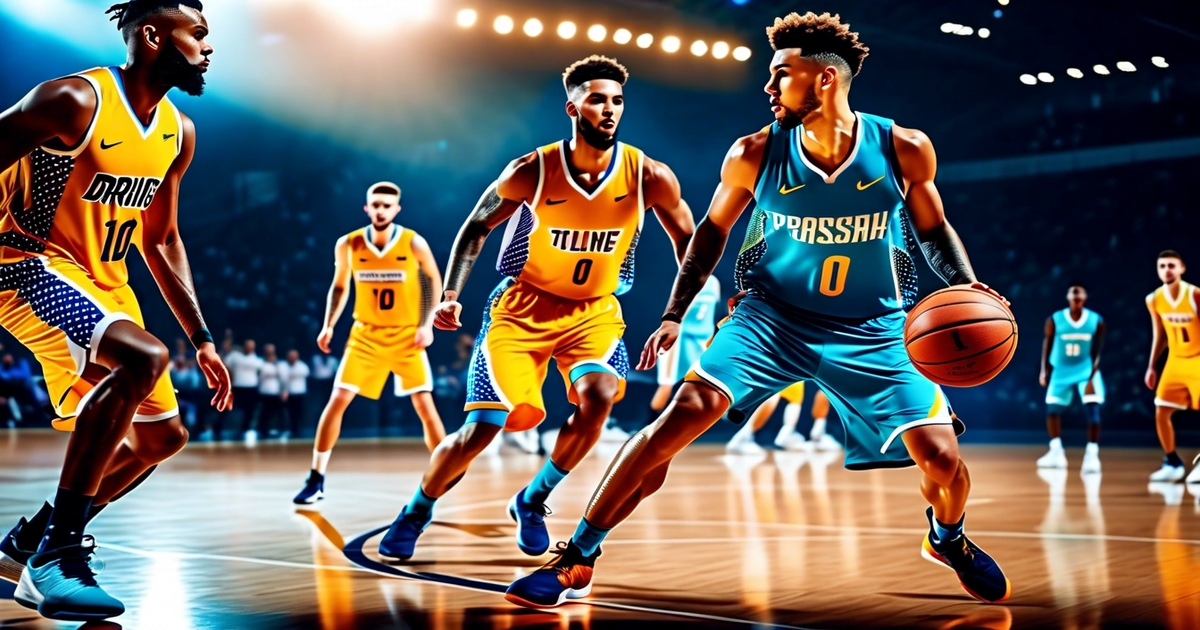
High Level of Skill and Training Required
Gaming requires a high level of skill and training, much like traditional varsity sports. Professional gamers spend countless hours honing their abilities, developing strategies, and perfecting their hand-eye coordination. They need to possess exceptional reflexes, quick decision-making skills, and the ability to think strategically under pressure. For example, in games like Dota 2 or League of Legends, players must master complex game mechanics and develop teamwork skills akin to those required in traditional team sports.
Furthermore, competitive gaming demands physical and mental stamina similar to that needed for athletic activities. Gamers often undergo rigorous training regimens to maintain peak performance levels during tournaments. This intense focus on skill development is comparable to the dedication seen in established varsity sports.
Recognition by International Sports Associations
International sports associations have started recognizing professional gaming as a legitimate sport. For instance, the International e-Sports Federation (IeSF) has been working towards gaining recognition for esports as an official sport from various national Olympic committees around the world.
Moreover, many countries now issue athlete visas for professional gamers traveling internationally for competitions, acknowledging them as athletes engaging in a recognized sporting activity. This growing acceptance by international governing bodies further solidifies gaming’s status as a sport, garnering it similar recognition enjoyed by more traditional athletic pursuits.
Arguments Against Gaming as a Sport

Lack of Physical Exertion
Gaming, unlike traditional sports, does not typically involve the same level of physical exertion. In activities such as basketball or soccer, players engage in intense physical movements that require strength and endurance. On the other hand, gaming predominantly involves sedentary behavior, with players sitting for extended periods without engaging in significant physical activity. This lack of physical exertion raises questions about whether gaming can truly be classified as a sport.
While some argue that certain games demand quick reflexes and mental agility, these aspects do not equate to the same level of physicality required by traditional sports. The absence of substantial physical movement is a fundamental point against considering gaming as a sport.
Sedentary Lifestyle Concerns
One major concern surrounding gaming’s classification as a sport revolves around its potential contribution to a sedentary lifestyle among participants. Engaging in prolonged periods of sitting while playing video games can lead to various health implications such as obesity, cardiovascular issues, and musculoskeletal problems. Unlike traditional athletes who undergo rigorous training regimens to maintain their fitness levels, gamers may face challenges related to maintaining overall health due to their sedentary nature.
The debate over classifying gaming activities stems from these concerns about the impact on individuals’ physical well-being. While mental acuity and strategic thinking are undoubtedly important components within competitive gaming circles, the lack of emphasis on physical conditioning remains at odds with conventional understandings of what constitutes a sport.
Physical and Mental Demands of Competitive Gaming
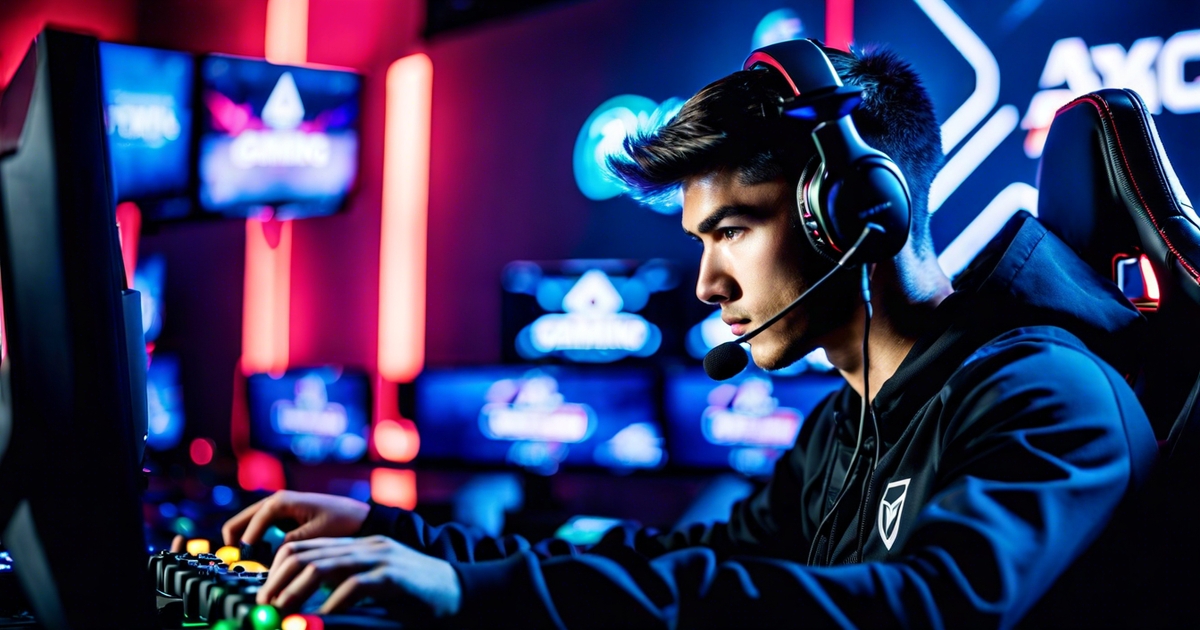
Rapid Decision-Making Under Pressure
Competitive gaming requires rapid decision-making under intense pressure. Gamers must analyze complex situations and make split-second choices to outmaneuver opponents. For instance, in first-person shooter games like “Call of Duty” or “Overwatch,” players need to swiftly assess the battlefield, choose strategies, and execute actions within milliseconds.
This level of cognitive demand is comparable to that seen in traditional sports such as basketball or soccer. Just like a point guard making quick decisions on the court, competitive gamers exhibit similar mental agility during high-stakes matches.
Hand-Eye Coordination and Reflexes Crucial for Success
The physical demands of competitive video gaming are often underestimated. Players rely heavily on hand-eye coordination and lightning-fast reflexes to navigate virtual environments with precision. Whether executing intricate combos in fighting games or aiming accurately in shooting games, gamers’ physical abilities are put to the test.
For example, professional esports athletes train extensively to enhance their reflexes through specialized exercises and drills designed to improve their response times. These efforts mirror those undertaken by traditional athletes who engage in specific training regimens tailored to enhance their physical performance on the field.
Mental Stamina and Focus During Extended Gameplay Sessions
Competitive gaming necessitates remarkable mental stamina and unwavering focus during prolonged gameplay sessions lasting several hours. Maintaining peak concentration over extended periods is crucial for success in tournaments where even a momentary lapse can result in defeat.
Like endurance athletes pushing through grueling races, competitive gamers must sustain their mental acuity throughout lengthy competitions without succumbing to fatigue or distraction.
Teamwork and Communication in eSports
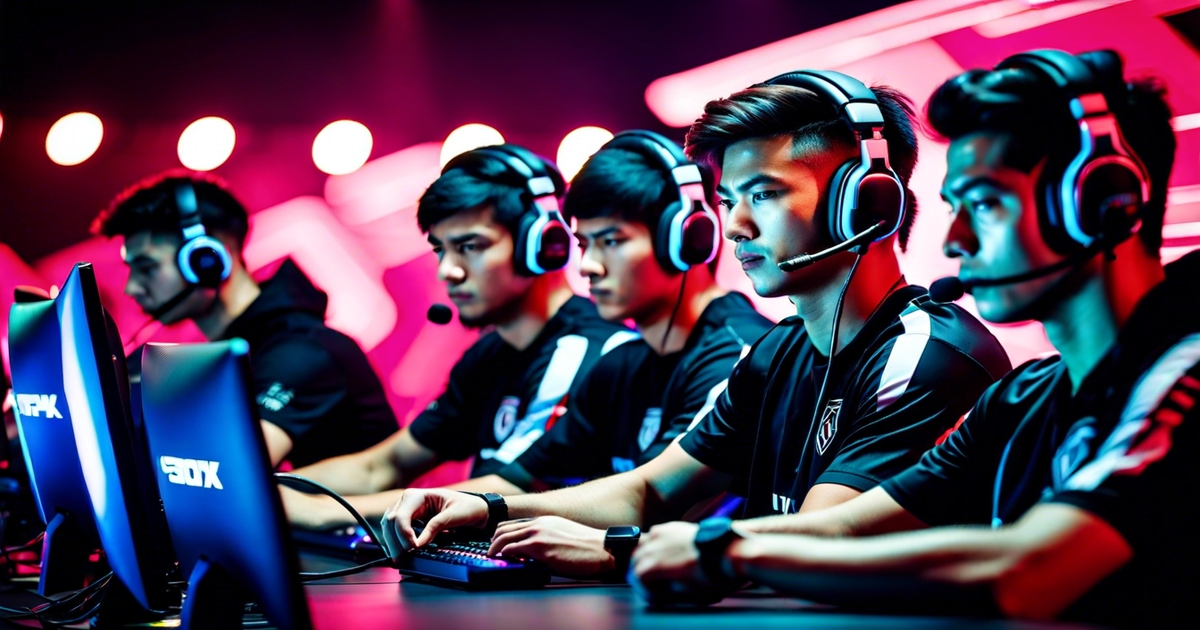
Strategic Play and Coordination
In eSports, successful gameplay relies heavily on teamwork and coordination. Players must work together to achieve strategic objectives, such as capturing points or defending areas. Each member of the team has a specific role that contributes to the overall success of the group. For example, in games like Overwatch, players might take on roles such as tank, support, or damage dealer, each with unique responsibilities that require close coordination with teammates.
Effective coordination is crucial for executing complex strategies and outmaneuvering opponents. It involves precise timing and seamless collaboration among team members to carry out planned maneuvers. This level of coordination demands high levels of concentration from all players involved.
Clear Communication for In-Game Tactics
Clear communication is essential for devising and executing in-game tactics effectively. Players need to convey critical information about enemy movements, strategy adjustments, or resource allocation promptly during intense gameplay scenarios. Without clear communication channels established within the team, it becomes challenging to adapt swiftly to changing circumstances during matches.
Emphasis on Collaboration and Synergy Within Teams The emphasis on collaboration within eSports teams fosters a sense of unity and camaraderie among players. Just like traditional sports teams have their favorite teams or leagues they follow dedicatedly; fans also have their favorite eSports organizations they support passionately due to their dedication towards development through teamwork.
Global Recognition and Scholarships in eSports
Educational Acknowledgment
College students with exceptional gaming skills are now being acknowledged by educational institutions. Many colleges and universities offer eSports scholarships to talented gamers, recognizing their abilities as a legitimate competitive sport. This acknowledgment has brought gaming into the mainstream, providing opportunities for players to pursue higher education while honing their gaming talents.
The establishment of official eSports federations in various countries further validates the recognition of gaming as a sport. These federations work closely with educational institutions to promote and support eSports at both amateur and professional levels. As a result, more college students are encouraged to pursue their passion for gaming while also focusing on their academic pursuits.
Professional Gaming Careers
The growing recognition of gaming has led to an increase in opportunities for professional gaming careers. With substantial prize pools, sponsorships, and endorsements, professional gamers can now earn a living through competitive gaming. This not only provides financial stability but also elevates the status of eSports as a legitimate career path.
Moreover, the integration of eSports programs within educational curriculums allows aspiring gamers to develop essential skills such as strategic thinking, decision-making, and teamwork—skills that are valuable not only in gaming but also in various other professions.
Comparison Between eSports and Traditional Sports
Competitive Structures
eSports and traditional sports both feature similar competitive structures and tournaments. In eSports, players compete in organized leagues, championships, and events, akin to traditional sports such as basketball or soccer. These competitions often involve teams representing organizations or countries, just like in traditional sports.
Both industries are experiencing growth in sponsorship and revenue. Major companies are investing in eSports teams and events due to the industry’s increasing popularity. Similarly, traditional sports have long been supported by sponsorships from various brands seeking exposure to a wide audience.
Physical vs. Mental Demands
One notable difference between the two is the differing physical vs. mental demands on athletes. Traditional athletes require physical strength, stamina, agility, and coordination to excel in their respective sports. On the other hand, eSports athletes rely more on mental prowess—quick reflexes, strategic thinking, decision-making under pressure—to succeed.
The Social Aspect and Fan Engagement in Gaming
Community Events and Conventions
Gaming has evolved into a social phenomenon, with community events, conventions, and fan gatherings becoming integral parts of the gaming culture. These events provide fans with opportunities to meet like-minded individuals who share their passion for specific games or teams. For instance, major gaming conventions such as E3 and Gamescom attract thousands of attendees each year, fostering a sense of community among gamers.
Interactive Streaming Platforms Platforms like Twitch and YouTube Gaming have revolutionized the way fans engage with players. Through live streaming, people can interact directly with their favorite gamers by sending messages, asking questions, or even participating in real-time polls during gameplay. This level of interactivity creates a strong bond between players and their audience, enhancing the overall experience for fans.
Development of Dedicated Fan Bases The rise of competitive gaming has led to the development of dedicated fan bases for specific games or esports teams. Just like traditional sports teams have loyal supporters, esports organizations have amassed significant followings. For example, popular games like League of Legends and Overwatch boast millions of dedicated fans who closely follow professional tournaments and support their favorite teams.
- Community events foster a sense of belonging among gamers.
- Interactive streaming platforms enable direct interaction between players and fans.
- Dedicated fan bases contribute to the growth and popularity of esports.
Summary
In conclusion, the debate on whether gaming should be considered a sport is multifaceted. While some argue that the physical and mental demands of competitive gaming, teamwork and communication in eSports, global recognition and scholarships, as well as the social aspect and fan engagement in gaming, align with traditional sports, others maintain that the lack of physical activity disqualifies it from being classified as a sport. The comparison between eSports and traditional sports further complicates the matter, raising questions about the evolving nature of sports in the digital age. As you ponder this issue, consider the broader implications of recognizing gaming as a sport, including its impact on education, industry, and society at large. Whether or not gaming is officially deemed a sport, its influence on modern culture is undeniable.
So, what’s your take? Join the conversation and share your thoughts on whether gaming should be acknowledged as a sport in today’s ever-changing landscape of athletic competition.
Frequently Asked Questions
Is gaming considered a sport?
Gaming is a contentious topic in the sports world. While some argue that it requires physical and mental skills akin to traditional sports, others believe that it lacks the physicality typically associated with sports.
What are the physical and mental demands of competitive gaming?
Competitive gaming demands intense focus, quick reflexes, strategic thinking, and hand-eye coordination. It involves both physical and mental aspects similar to those required in traditional sports.
How does teamwork play a role in eSports?
Teamwork is crucial in eSports as players need to collaborate effectively with their teammates to achieve success. Communication, coordination, and trust among team members are essential for victory.
Are there global recognition and scholarships available in eSports?
Yes, eSports has gained international recognition with prestigious tournaments like The International for Dota 2 offering substantial prize pools. Many universities also provide scholarships for talented gamers through their eSports programs.
How does fan engagement work in gaming compared to traditional sports?
Fan engagement in gaming often involves online platforms such as streaming services, social media interactions, and virtual communities. In contrast, traditional sports rely on live events at stadiums or arenas for fan participation.
